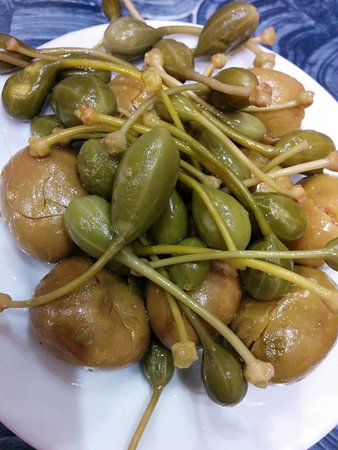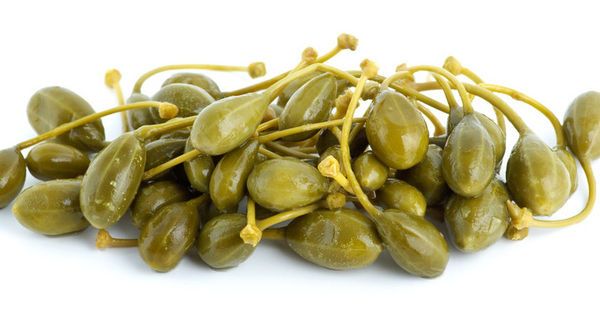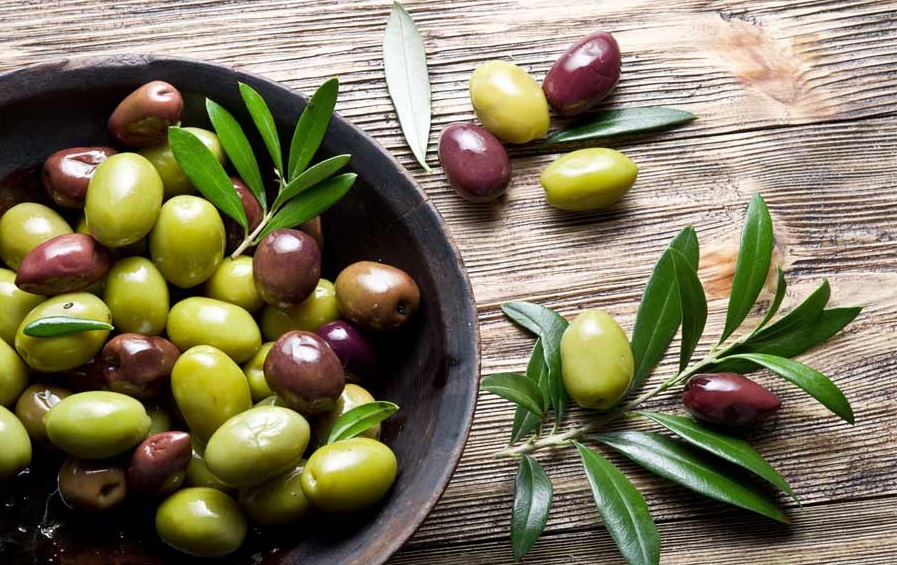<center>
[source](https://media-cdn.tripadvisor.com/media/photo-s/0d/73/75/da/aceitunas-y-alcaparras.jpg)

Greetings friends of @steemit, all aluna once we have used and consumed capers and olives to enjoy its flavor, but we must know that it also has useful properties for our body and their health.
***
<h2>The capers and their benefits.</h2>
<center>
[source](https://encrypted-tbn0.gstatic.com/images?q=tbn:ANd9GcRhs8uT1QVJnbGlO8hbNhnQyrU25texoCJNKYG-fwdygZYeOxOSVg)

The chemical composition of capers is characterized by the presence of many useful elements. Sprouting seeds contain a large amount of fatty oil, around 35%. The stem of the plant contains a certain amount of mustard oil, to which the fruits owe their acrid and acid taste.
The composition of the capers includes a large amount of fiber, dietary fiber, organic acids. The beneficial properties of capers are due to the presence of vitamin A, several vitamins of group B, ascorbic acid, vitamin E, iodine, magnesium and calcium. Canning conserves many useful elements, but the heat treatment deprives these vegetables of many of them.
All parts of the caper bush have analgesic, antiseptic and astringent properties. It is not surprising that a decoction of its flowers, fruits, roots and leaves of antiquity was used to heal wounds, toothache, diseases of the heart and the thyroid gland. Capers served before meals arouse appetite.
The use of capers usually occurs in a pickled form. For prolonged storage, they are usually preserved in a marinade based on vinegar and salt.
Marinated capers are used to flavor and season a wide variety of dishes: meats, poultry, fish, salads. They are added to pizza and pasta, sauces, pickles, hot and cold sandwiches, added to olive oil to give it a strong flavor. Often, capers are used at the end of cooking: they are crushed and serve to replace salt and seasonings.
***
<h2>The olives and their benefits.</h2>
<center>
[source](https://www.aceitel.com/blog/wp-content/uploads/2018/07/variedades-de-aceitunas-para-el-mejor-aceite.jpg)

The olives have a large amount of vitamins of group B (B9, B4, B1, B5, B3, B2, B6), A, K, E and mineral substances: sodium, iron, calcium, potassium, magnesium, phosphorus, copper. The fats that make up the olives are quite unusual and almost three quarters of the total mass is predominant as the oleic acid, the monounsaturated fatty acids. In addition, they provide a small amount of essential fatty acids, namely, linoleic acid, and a very small amount of alpha-linolenic acid, omega-3 fatty acids.
The beneficial properties of olives are due to the large amount of oils in their composition. The proportion of oil can reach up to 80% and are very beneficial because there is absolutely no cholesterol in your fats.
And as for children, and for adults, the benefits of olives will be invaluable due to a strong increase in immunity. Vitamins C and E contained in their chemical composition help to increase the activity of the cells of the immune system. In addition, they also inhibit the activity of free radicals in the body, which provides an effect against cancer.
But perhaps the most notable beneficial properties of olives are related to their ability to improve digestion. In addition, olives not only increase appetite, but also help to accelerate the absorption of food, normalize the intestines and help to cope with many disorders. Along with what all the nutrients consumed by the body more completely and efficiently. By the way, the benefit of canned olives is that they are often harvested with spices and spices, so that they not only become authentic delights, but also tend to accelerate many metabolic processes in the body.
Olives have little sugar, but many fatty acids, which are necessary for the normal course of many metabolic processes, including diabetes mellitus.
The benefits of olives are that they are able to normalize the blood circulation in the brain and improve the functioning of the peripheral nervous system.
Olives are useful for gallstone disease; helps to increase hemoglobin levels in the blood; Provides joints with phosphorus and calcium.
The composition of olives has a more surprising virtue: it is marvelously combined with a large number of the most varied products and dishes. The experience of the Mediterranean culinary experts who add olives to almost all their creations is a great example.
In fact, due to the neutral taste and the small amount of acids, the olives, whose composition is extremely useful, are excellent for salads, fish dishes, stews, cheeses and desserts. A wide variety of canned foods and product combinations may vary.
Today, there are more than a dozen different types of olives canned for sale, which are harvested with and without stones, stuffed with paprika, lemon, almonds, anchovies and other fillings. With such abundance, it is not easy to find out which olives are the most useful and if there is a difference between black and green canned fruits. It turns out that the use of olives depends directly on the method of conservation.
</center>
 hiveblocks
hiveblocks